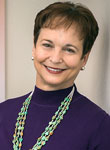Congratulations to the 2014 Marquette National Moot Court Teams
I had the privilege of working with two outstanding National Moot Court Competition (NMCC) teams again this year. Marquette hosted the Region VIII round of the 65th Annual NMCC this weekend and included thirteen participating teams. Marquette fielded two teams; please congratulate both on their strong finishes.
Michelle Cahoon, James Decleene, and Brian Kane took the best Petitioner’s brief award with the top scoring brief in the competition. The team advanced the semifinal round and just missed qualifying for nationals by less than a point. Attorneys Jesse Blocher, Michael Cerjak, and Brendon Reyes coached the team. Brendon, now an attorney practicing in Waukesha, was a member of last year’s national team. Jesse was a member of one of my first NMCC teams.
Jennifer McNamee and Elizabeth Oestreich advanced to the quarterfinals and were the number 1 seed after the preliminaries, after particularly strong showings in their oral arguments. That team was coached by Attorneys Emily Lonergan, Jason Luczak, and Max Stephenson. Elizabeth, Emily, and Max happened all to have (Elizabeth), or had (Emily and Jason), the role of Chief Justice of our Moot Court Association. I enjoyed watching the students and coaches on both teams working together and getting to know each other.

